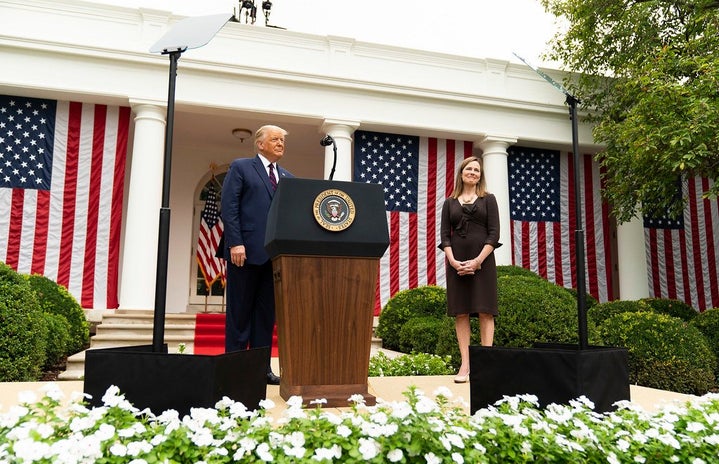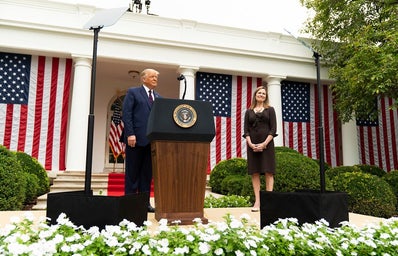By now, you might have heard that judge Amy Coney Barrett, Donald Trump’s supreme court nomination to replace Ruth Bader Ginsburg, was confirmed on October 26th. Many republicans celebrated this nomination, as the supreme court now has a 6-3 republican majority, and many democrats opposed it. It is hard to tell which information on Barrett is true, and what her time as a judge on the highest court in the land may actually mean, so here is my best shot at understanding what we can expect from supreme court decisions without Ruth Bader Ginsburg.
- Her Religious Views
-
Amy Coney Barrett’s religion has been a huge topic of interest since her nomination, as she identifies as catholic, and has been affiliated with the People of Praise community, which has extremely conservative views on marriage and women’s rights. We know that on either side of the political spectrum, someone’s religion should never have any influence on their supreme court rulings. However, many people have voiced concern that her extreme christian values will trump her regard for human rights and law, and threaten women’s rights, LGBTQ+ rights, and strides toward equity that we have seen in this country in the past.
- Women’s Rights
-
Barrett has been outspoken on her opinion that life begins at conception, and she has opposed abortion throughout her career. Many women fear that the landmark Roe v. Wade decision that granted access to legal abortion may be overturned. While the fear of losing the right to choose is valid, an immediate ban on abortions would be extremely unlikely. Before the Roe v Wade decision, many states had legalized abortion, meaning overturning this law would not change the accessibility of abortions in multiple states. Barrett is an “originalist”, meaning she believes the United States Constitution should be interpreted now as it was at the time of its creation. In the hundreds of years since the Constitution was ratified, language, and life in general, has changed greatly, meaning many underserved populations would face injustice from originalism.
- LGBTQ+ Rights
-
Members of the LGBTQ+ community are not treated with equality in so many areas of life, such as education and healthcare, so equality in the future seems uncertain with an overwhelming conservative majority on the supreme court. Barrett has also voiced her opposition to same-sex marriage in the past. The upcoming supreme court case Fulton v. City of Philadelphia, “a case that looks at whether faith-based child welfare agencies can refuse to work with same-sex couples and other people whom they consider to be in violation of their religious beliefs” will give us an idea of whether she will support the LGBTQ+ commuity or not.
These are just a few hot topics that Barrett’s confirmation raises some questions about, and definitely does not include them all. Amy Coney Barrett has not voted in any supreme court decisions yet, so there is no way to know for certain how she will vote in the future, but there is no doubt that her legacy as a supreme court justice will differ greatly from that of Ruth Bader Ginsburg.



